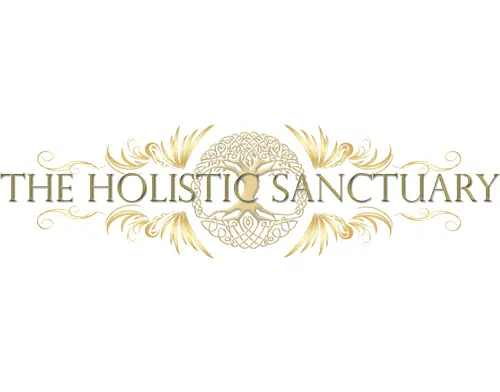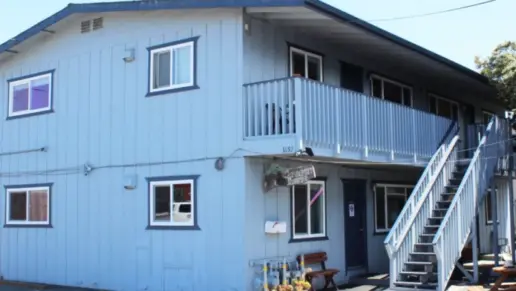The eye opening and soul freeing experience I had at the holistic sanctuary is like nothing I've ever felt before. I was so depressed, I felt that life was just you wake up, go to work, pay your bills, and die. I honestly didn't even feel like it was worth living and my medi ...
About The Holistic Sanctuary
The Holistic Sanctuary is a luxury alcohol and drug rehab for adults with an administrative office in Beverly Hills, California and residential and outpatient treatment center in Baja California, Mexico. Their clinic in Mexico provides dual diagnosis care, medical detox, inpatient programs (IP) and aftercare support. Their holistic approach integrates modern medical practices with evidence-based complementary therapies. No chemical pharmaceuticals are used during treatment.
Clients undergoing detox receive round-the-clock supervision, a comprehensive medical and mental health evaluation, and personalized care plan. They are given daily IV drips, colonics, cleanses, and other research-supported alternative therapies according to their customized treatment plans.
Their residential treatment center features premium amenities, including oceanfront views, to enable clients to focus on their recovery in a serene and healing environment. The center provides different packages of holistic therapy to support recovery at the cellular, neurological, psychological, and spiritual levels. Treatment options include Pouyan therapy, yoga, meditation, massage therapy, sacred plant medicine, chelation, red light therapy, and reiki. Additional services include stem-cell therapy, ozone therapy, and hyperbaric oxygen chamber sessions. Gym membership, meals, private suites, salt baths, and beachfront activities are included. No medications or group therapy is provided. Stays range from four to 12 weeks.
Clients stepping down from inpatient treatment receive an individualized discharge plan to ensure their sustained recovery. Referrals for ongoing counseling, recovery education, and complementary therapies are included.
The Holistic Sanctuary offers self-pay and financing. The cost of some services may be covered, in whole or in part, by major insurance providers, such as Aetna, Anthem, Blue Cross Blue Shield, Humana, and United Healthcare. Please check your insurance provider for specific details concerning out-of-network coverage.
Latest Reviews
Rehab Score
Gallery





Location
Accepted Insurance
Other Forms of Payment
Self-pay involves paying for treatment out of your own pocket. You can use savings or credit, get a personal loan, or receive help from family and friends to fund your treatment. If you don't have insurance or your insurance plan doesn't cover a specific program, self-pay can help ensure you still get the care you need.
Addiction Treatments
Levels of Care
Treatments
The goal of treatment for alcoholism is abstinence. Those with poor social support, poor motivation, or psychiatric disorders tend to relapse within a few years of treatment. For these people, success is measured by longer periods of abstinence, reduced use of alcohol, better health, and improved social functioning. Recovery and Maintenance are usually based on 12 step programs and AA meetings.
Drug rehab in California teaches participants constructive ways to stay clean and sober. Treatment revolves around helping individuals stop using the substance they are addicted to and learn healthy habits to avoid relapse.
Many of those suffering from addiction also suffer from mental or emotional illnesses like schizophrenia, bipolar disorder, depression, or anxiety disorders. Rehab and other substance abuse facilities treating those with a dual diagnosis or co-occurring disorder administer psychiatric treatment to address the person's mental health issue in addition to drug and alcohol rehabilitation.
A combined mental health and substance abuse rehab has the staff and resources available to handle individuals with both mental health and substance abuse issues. It can be challenging to determine where a specific symptom stems from (a mental health issue or an issue related to substance abuse), so mental health and substance abuse professionals are helpful in detangling symptoms and keeping treatment on track.
Opioid rehabs specialize in supporting those recovering from opioid addiction. They treat those suffering from addiction to illegal opioids like heroin, as well as prescription drugs like oxycodone. These centers typically combine both physical as well as mental and emotional support to help stop addiction. Physical support often includes medical detox and subsequent medical support (including medication), and mental support includes in-depth therapy to address the underlying causes of addiction.
Programs


Clinical Services
Cognitive Behavioral Therapy (CBT) is a therapy modality that focuses on the relationship between one's thoughts, feelings, and behaviors. It is used to establish and allow for healthy responses to thoughts and feelings (instead of unhealthy responses, like using drugs or alcohol). CBT has been proven effective for recovering addicts of all kinds, and is used to strengthen a patient's own self-awareness and ability to self-regulate. CBT allows individuals to monitor their own emotional state, become more adept at communicating with others, and manage stress without needing to engage in substance abuse.
Experiential therapy is a form of therapy in which clients are encouraged to surface and work through subconscious issues by engaging in real-time experiences. Experiential therapy departs from traditional talk therapy by involving the body, and having clients engage in activities, movements, and physical and emotional expression. This can involve role-play or using props (which can include other people). Experiential therapy can help people process trauma, memories, and emotion quickly, deeply, and in a lasting fashion, leading to substantial and impactful healing.
EMDR is a therapeutic modality originally developed to help process trauma. In an EMDR session, a patient is prompted to undergo eye movements that mimic those of REM sleep. This is accomplished by watching a therapist's finger move back and forth across, or following a bar of light. The goal is repetitive sets of eye movements that help the brain reprocess memory, which can significantly reduce the intensity of remembered traumatic incidents. Associated memories can heal simultaneously, leaving patients significantly calmer, more stable, and more emotionally relaxed.
Research clearly demonstrates that recovery is far more successful and sustainable when loved ones like family members participate in rehab and substance abuse treatment. Genetic factors may be at play when it comes to drug and alcohol addiction, as well as mental health issues. Family dynamics often play a critical role in addiction triggers, and if properly educated, family members can be a strong source of support when it comes to rehabilitation.
Fitness therapy blends exercise with psychotherapy for a fun, inspiring, and effective way of treating addiction and other issues. By incorporating movement into counseling sessions, clients become more empowered, motivated, and goal-oriented, all while strengthening their bodies and becoming more flexible. Fitness Therapy is usually used to complement a course of treatment (inpatient or outpatient) to make it even more successful. Increasing the connection between a patient’s mind and body helps both with healing as well as in creating new, healthy habits.
In individual therapy, a patient meets one-on-one with a trained psychologist or counselor. Therapy is a pivotal part of effective substance abuse treatment, as it often covers root causes of addiction, including challenges faced by the patient in their social, family, and work/school life.
Life skills trainings involve all the skills a person must have in order to function successfully in the world. These include time management, career guidance, money management, and effective communication. Truly successful addiction recovery is based on the ability to not only live substance-free, but to thrive. Life skills teaches the practical necessities of functioning in society, which sets clients up for success in life, and therefore sobriety.
Motivational Interviewing (MI) is a clinical approach to helping people with substance abuse issues and other conditions shift behavior in positive ways. It is more goal-oriented than traditional psychotherapy, as MI counselors directly attempt to get clients to consider making behavioral change (rather than wait for them to come to conclusions themselves). Its primary purpose is to resolve ambivalence and help clients become able to make healthy choices freely.
Each guest gets a plant-based, raw food, organic, non-GMO diet to maximize nutrient absorption to maximize healing. They have the only IV formula that repairs the Gaba receptors, dopamine receptors, and serotonin receptors to bring the guest back to life, reconnect them to their soul by simply decalcifying the pineal gland, and activating the God/Spirit Molecule from within. They also detox the GI tract from candida, to help reset and repair serotonin receptors.
Trauma therapy addresses traumatic incidents from a client's past that are likely affecting their present-day experience. Trauma is often one of the primary triggers and potential causes of addiction, and can stem from child sexual abuse, domestic violence, having a parent with a mental illness, losing one or both parents at a young age, teenage or adult sexual assault, or any number of other factors. The purpose of trauma therapy is to allow a patient to process trauma and move through and past it, with the help of trained and compassionate mental health professionals.
Amenities
-
Private Setting
-
Yoga Studio
-
Private Rooms
-
Hiking
-
Gym
Contact Information
1212 Wilshire Blvd
Beverly Hills CA, 90212








